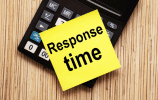Did you get that interview invite from Meta? First step done! You’re about to embark on a journey that could land you a role at one of the world’s most innovative tech companies. But don’t worry, we’re here to guide you every step of the way.
We get it – the thought of interviewing with such a prestigious company can be intimidating. But here’s the thing: with the right preparation, you’ve got this.
Whether you’re aiming for a role as a data engineer, software developer, or any other position, this guide will equip you with the strategies you need to shine.
In the following sections, we’ll cover:
- The ins and outs of Meta’s interview process
- How to ace both behavioral and technical interviews
- Tips for showcasing your skills and personality
Ready to transform those interview jitters into confidence? Let’s dive in and start preparing for your Meta moment!
- Navigating Meta’s Interview Process
- Preparing for Each Stage: Your Game Plan
- Understanding Meta’s Company Culture and Values – The Heart of Meta: Core Values
- Mastering the Meta Behavioral Interview
- Cracking the Meta Data Engineer Interview
- Meta Interview Questions and Answers
- Meta Interview Preparation Tips
- Meta Interview Experience and Response Time
- In Closing

Navigating Meta’s Interview Process
Think of Meta’s hiring process as a quest, with each stage bringing you closer to your dream job. The meta hiring process can range from 4 weeks to 5 months, with various stages involving waiting periods for communication from recruiters and interview experiences. Here’s a breakdown of what to expect:
- Application: This is where it all begins. Your resume and cover letter are your first chance to make an impression.
- Phone Screening: A recruiter will call to assess your qualifications and enthusiasm. First impressions count!
- Technical Interviews: Time to showcase your skills! Expect coding challenges or technical assessments relevant to your role.
- Behavioral Interviews: Meta wants to know the real you. Share your experiences and how you handle various situations.
- On-site Interviews: The final stretch! You’ll have in-depth conversations with potential team members and managers.
- The Offer: If you’ve made it this far, congratulations! You’re on the verge of joining the Meta family.
Remember, this process isn’t just about Meta evaluating you—it’s also your chance to decide if Meta is the right fit for your career goals.
Types of Interviews: Know What to Expect
As you progress through your Meta interview journey, you’ll encounter different types of interviews, including meta interviews such as coding, behavioral, and system design. A system design interview entails stages like understanding requirements, high-level design, and low-level design considerations.
Let’s explore the main ones:
Behavioral Interviews: Showcasing Your Experiences
In behavioral interviews, you’ll share stories about your past projects, how you’ve handled challenges, and times you’ve excelled as a team player. This is your chance to show that you’re not just a set of skills, but a real person with valuable experiences.
Pro tip: Prepare stories that highlight your problem-solving abilities and alignment with Meta’s values.
Technical Interviews: Your Skills in Action
For technical roles like data engineering, get ready to demonstrate your expertise. You might face questions about:
- SQL and database management
- Python programming
- Data warehousing concepts
- ETL processes
Coding interviews involve a straightforward binary scoring system to assess a candidate’s technical abilities.
Remember, it’s not just about getting the right answer. Meta wants to see your thought process and how you approach problems.
Virtual Interview Considerations
Many interviews are now conducted virtually. Here are some quick tips to help you succeed:
- Test your technology beforehand
- Find a quiet, well-lit space
- Make “eye contact” by looking at the camera
- Have a backup plan in case of technical difficulties

Preparing for Each Stage: Your Game Plan
Now that you know what to expect, let’s arm you with strategies for each stage:
Application Stage:
- Tailor your resume to highlight experiences relevant to Meta’s mission
- Craft a cover letter that shows your passion for technology and innovation
Phone Screening:
- Research Meta’s latest products and initiatives
- Prepare a concise “tell me about yourself” response
- Have thoughtful questions ready about the role and team
Technical Interviews:
- Practice coding problems on platforms like LeetCode or HackerRank
- Review fundamental concepts in your field
- Get comfortable explaining your thought process out loud
Additionally, utilizing resources such as those provided here by Skillful Talk will help you level up your performance in your interview. Not only will you get a chance to prepare your answers, you’ll also learn how you perform against other people in the job search market. To date, our AI has been trained in real-life examples by over 150,00 people. Ensure your interview shows the best side of yourself today with Skillful Talk.
Behavioral Interviews:
- Prepare stories using the STAR method (Situation, Task, Action, Result)
- Reflect on experiences that align with Meta’s values
- Practice active listening and asking clarifying questions
On-site Interviews:
Remember, preparation is key to confidence. The more you prepare, the more at ease you’ll feel during the interviews. But don’t forget to let your genuine enthusiasm and personality shine through—Meta is looking for authentic individuals who can bring unique perspectives to their team. Candidates engage with multiple hiring managers to evaluate fit and chemistry before selecting a team.
You’re now equipped with the knowledge to tackle each stage of the Meta interview process. In the next section, we’ll dive deeper into Meta’s company culture and values, helping you align your responses with what they’re really looking for.
Ready to continue your journey towards Meta success? Let’s keep the momentum going!

Understanding Meta’s Company Culture and Values – The Heart of Meta: Core Values
To truly shine in your Meta interview, it’s crucial to understand what makes the company tick. Meta’s culture is built on a foundation of core values that guide everything they do. Let’s dive into these values and how you can align yourself with them:
- Move Fast: At Meta, speed is key. They believe in quick innovation and aren’t afraid to break things in the process of creating something better. How to show it: Share examples of when you’ve worked efficiently or implemented rapid improvements.
- Focus on Long-Term Impact: Meta thinks big and plans for the future, not just immediate gains. How to show it: Discuss projects where you’ve considered long-term consequences or planned for scalability.
- Be Bold: Risk-taking and thinking outside the box are encouraged at Meta. How to show it: Talk about times you’ve proposed innovative solutions or taken calculated risks.
- Be Open: Transparency and open communication are valued highly. How to show it: Describe situations where you’ve fostered open dialogue or shared information to improve team performance.
- Build Social Value: Meta aims to make the world more open and connected. How to show it: Highlight experiences where your work has had a positive social impact.
Aligning Your Responses with Meta’s Culture
Now that you understand Meta’s values, it’s time to think about how you can demonstrate your alignment with them. Here are some strategies:
- Prepare Stories: For each value, have a relevant anecdote ready from your professional or personal experience.
- Use the STAR Method: When sharing these stories, use the Situation, Task, Action, Result format to clearly communicate your impact.
- Show Enthusiasm: Meta values passion. Don’t be afraid to show your excitement about technology and its potential to connect people.
- Demonstrate Adaptability: Meta’s fast-paced environment requires flexibility. Share examples of how you’ve adapted to change or learned new skills quickly.
- Highlight Collaboration: Meta’s mission requires teamwork. Emphasize your ability to work well with diverse groups of people.

Mastering the Meta Behavioral Interview
What is a Behavioral Interview?
Behavioral interviews are a crucial part of Meta’s hiring process. But what exactly are they? Simply put, these interviews are designed to understand how you’ve handled various work situations in the past. The idea is that your past behavior is the best predictor of your future performance.
In a behavioral interview at Meta, you’ll be asked to provide specific examples of how you’ve demonstrated particular skills or handled certain situations. These questions often start with phrases like:
- “Tell me about a time when…”
- “Describe a situation where…”
- “Give me an example of…”
The key here is to be prepared with concrete examples from your past experiences that showcase your skills and align with Meta’s values.
Common Behavioral Interview Questions at Meta
While every interview is unique, here are some common types of questions you might encounter in a Meta behavioral interview:
- Problem-solving: “Describe a time when you faced a complex problem at work. How did you approach it?”
- Leadership: “Tell me about a time when you had to lead a team through a difficult project.”
- Conflict resolution: “Give an example of how you’ve handled a disagreement with a coworker.”
- Adaptability: “Describe a situation where you had to quickly adjust to a significant change at work.”
- Innovation: “Tell me about a time when you came up with a novel solution to a problem.”
- Failure: “Describe a project that didn’t go as planned. What did you learn from it?”
- Teamwork: “Give an example of how you’ve contributed to a team’s success.”
Remember, these are just examples. The specific questions you’ll be asked may vary, but they’ll all be aimed at understanding your past behavior and how it relates to the role you’re applying for at Meta.
The STAR Technique: Your Secret Weapon
When answering behavioral questions, the STAR method is your best friend. STAR stands for:
- Situation: Set the scene. What was the context?
- Task: What was your responsibility in this situation?
- Action: What specific steps did you take?
- Result: What was the outcome of your actions?
For a complete rundown on how to use STAR to level up your interview performance check out this popular page.
Tips for Success in Meta Behavioral Interviews
- Prepare Your Stories: Before the interview, reflect on your experiences and prepare several stories that showcase your skills and align with Meta’s values.
- Be Specific: Use concrete examples and provide details. Vague answers won’t impress your interviewer.
- Quantify Your Results: Whenever possible, use numbers to illustrate the impact of your actions.
- Keep It Recent and Relevant: Focus on recent experiences that are most relevant to the role you’re applying for at Meta.
- Be Honest: Don’t embellish or make up stories. Authenticity is key.
- Practice Active Listening: Make sure you understand the question before answering. It’s okay to ask for clarification.
- Show Self-Awareness: Reflect on what you learned from each experience, especially when discussing challenges or failures.
- Be Concise: While you want to provide enough detail, try to keep your answers to 1-3 minutes unless asked to elaborate.
- Prepare Questions: Remember, interviews are a two-way street. Have thoughtful questions ready about the role and team.
By mastering the art of behavioral interviews, you’ll be able to effectively communicate your experiences and showcase why you’re the perfect fit for Meta. In our next section, we’ll dive into the technical side of things, focusing on what to expect in a Meta data engineer interview.
Ready to showcase your technical prowess? Let’s move on to cracking the code of Meta’s technical interviews!

Cracking the Meta Data Engineer Interview
The Role of a Data Engineer at Meta
Before we dive into the interview specifics, let’s understand what Meta is looking for in a data engineer. At Meta, data engineers play a crucial role in:
- Designing, building, and maintaining large-scale data processing systems
- Ensuring data quality, reliability, and accessibility
- Collaborating with data scientists, analysts, and other engineers to support data-driven decision making
- Optimizing data flow and collection for cross-functional projects
As a data engineer at Meta, you’ll be working with massive datasets and cutting-edge technologies. Your ability to handle complex data challenges efficiently and innovatively is key. Meta is currently hiring software engineers at a much larger scale than its competitors.
Technical Skills Under the Microscope
In your technical interviews, Meta will assess your proficiency in several key areas. Here’s what you need to focus on:
- SQL Mastery: Expect in-depth questions on complex queries, optimization, and database design.
- Python Proficiency: You should be comfortable with Python for data manipulation and scripting.
- Big Data Technologies: Familiarity with tools like Hadoop, Spark, and Hive is crucial.
- Data Modeling: Understanding of both relational and NoSQL database concepts is important.
- ETL Processes: Knowledge of Extract, Transform, Load processes and tools is essential.
- Data Warehousing: Concepts related to designing and managing data warehouses will be tested.
- System Design: Ability to design scalable, efficient data systems is key.
- Data Privacy and Security: Understanding of data protection principles is increasingly important.
Additionally, preparing specifically for system design interviews is a key component of the interview process.
Common Data Engineer Interview Questions at Meta
While the specific questions can vary, here are some types of questions you might encounter:
- SQL Challenges: “Write a query to find the top 5 users who posted the most comments in the last 30 days.”
- Data Modeling: “Design a database schema for a social media platform’s messaging system.”
- ETL Scenarios: “Describe how you would build an ETL pipeline to process daily user activity data from multiple sources.”
- System Design: “How would you design a real-time analytics dashboard for Facebook’s live video feature?”
- Optimization Problems: “Given a slow-running query, how would you approach optimizing it?”
- Coding Tasks: “Implement a function to detect and remove duplicate records from a large dataset.”
- Big Data Scenarios: “How would you process and analyze a petabyte of user interaction data?”
Remember, these questions are designed to test not just your knowledge, but your problem-solving approach and ability to handle real-world data challenges.
Tips for Success in Meta’s Technical Interviews
- Think Out Loud: Articulate your thought process. Interviewers want to understand how you approach problems.
- Ask Clarifying Questions: Don’t hesitate to seek more information if a problem statement is ambiguous.
- Consider Scalability: Meta deals with enormous amounts of data. Always think about how your solutions would scale.
- Discuss Trade-offs: There’s often no perfect solution. Be prepared to discuss pros and cons of different approaches.
- Be Ready to Optimize: After solving a problem, think about how you could make your solution more efficient.
- Connect to Real-World Scenarios: Relate your solutions to actual challenges Meta might face.
- Show Your Passion: Demonstrate your enthusiasm for data engineering and Meta’s mission.
- Stay Calm Under Pressure: If you get stuck, take a deep breath and break the problem down into smaller parts.
By thoroughly preparing for these technical aspects, you’ll be well-equipped to showcase your skills as a data engineer. Remember, Meta is not just looking for technical proficiency, but also for problem-solving ability, creativity, and a passion for tackling complex data challenges.

Meta Interview Questions and Answers
Top Interview Questions Asked at Meta
Here’s a mix of behavioral and technical questions you might encounter, along with sample answers:
“Tell me about a time when you had to deal with a team member who wasn’t pulling their weight.”
“In my last role, I was leading a project where one team member consistently missed deadlines. I scheduled a private meeting to understand if there were any issues affecting their performance. They revealed they were struggling with some technical aspects of the project. I paired them with a more experienced team member for mentoring and adjusted their tasks to better match their skills. This approach improved their productivity, and we successfully completed the project on time.”
“Describe a situation where you had to explain a complex technical concept to a non-technical stakeholder.”
“In my previous role, I had to explain our new data encryption process to our marketing team. I used an analogy of sending a secret message in a locked box, where only the intended recipient has the key. I created a simple visual presentation to illustrate the concept. This approach helped the team understand the importance of the process and how it would impact their workflows.”
“How would you design a system to handle Facebook’s friend recommendations?”
“I’d approach this in several steps:
- Data Collection: Gather user data like mutual friends, interests, and interaction history.
- Data Storage: Use a graph database to efficiently store connections.
- Recommendation Algorithm: Implement collaborative filtering and graph analysis techniques.
- Scalability: Use distributed computing to handle the massive amount of data.
- Privacy: Ensure the system respects user privacy settings.
- Performance: Implement caching to speed up frequent recommendations.
- Testing and Iteration: Continuously A/B test to improve recommendation quality.”
“How would you optimize a slow-running SQL query?”
“I’d take the following steps:
- Analyze the execution plan to identify bottlenecks.
- Check for proper indexing on frequently used columns.
- Rewrite the query to avoid expensive operations like correlated subqueries.
- Consider denormalizing data if it significantly improves performance.
- Use appropriate join types and optimize join conditions.
- Partition large tables if dealing with massive datasets.
- Consider using materialized views for complex, frequently-run queries.”
Remember, these are just examples. Tailor your answers to reflect your own experiences and knowledge.
Additional Popular Interview Questions at Meta
Here are 10 more popular questions you might encounter in a Meta interview, especially for data engineering roles:
- “How would you design a real-time analytics dashboard for Facebook’s active user metrics?”
- “Explain the concept of data partitioning and when you would use it in a large-scale database system.”
- “How would you handle a sudden spike in data volume in an ETL pipeline?”
- “Describe a time when you had to make a difficult decision with incomplete information. How did you approach it?”
- “How would you design a data model for Instagram’s hashtag feature?”
- “Explain the differences between OLAP and OLTP systems and their use cases at Meta.”
- “How would you ensure data consistency in a distributed system?”
- “Describe a project where you had to optimize query performance. What steps did you take and what was the outcome?”
- “How would you design a system to detect and prevent spam posts on Facebook?”
- “Tell me about a time when you had to learn a new technology quickly to complete a project. How did you approach the learning process?”
Remember, these questions are designed to assess not just your technical knowledge, but also your problem-solving skills, your ability to handle ambiguity, and your experience with large-scale data systems. When preparing, focus on articulating your thought process clearly and drawing from your past experiences to provide concrete examples.

Meta Interview Preparation Tips
- Know Meta Inside Out: Research Meta’s products, recent news, and future plans. Understanding the company’s direction can help you align your answers with their goals.
- Practice, Practice, Practice: Use mock interviews with friends or mentors to get comfortable articulating your thoughts.
- Master the Basics: Ensure you have a solid grasp of computer science fundamentals, data structures, and algorithms.
- Stay Updated: Keep abreast of the latest trends in data engineering and tech in general.
- Prepare Your Questions: Have thoughtful questions ready for your interviewers about the role, team, and Meta’s engineering culture.

Meta Interview Experience and Response Time
What to Expect on Interview Day
- For on-site interviews (when applicable), expect a full day of 4-5 interviews, each lasting about 45 minutes to an hour.
- Virtual interviews are typically structured similarly, with breaks in between.
- You’ll likely have a mix of behavioral and technical interviews.
- Be prepared for a lunch interview, which is more casual but still part of the evaluation process.
Post-Interview Process
- After your interviews, the interviewers will submit their feedback.
- A hiring committee will review all feedback to make a decision.
- This process typically takes 1-2 weeks, but can sometimes be longer.
- If you haven’t heard back within two weeks, it’s appropriate to follow up with your recruiter.

In Closing
Remember, the key to success lies in thorough preparation, clear communication, and showcasing your passion for solving complex data challenges.
As you prepare, keep these final thoughts in mind:
- Be yourself. Meta values authenticity and diverse perspectives.
- Embrace the challenge. Each question is an opportunity to showcase your skills.
- Stay calm and composed. If you get stuck, take a deep breath and approach the problem step by step.
- Show your enthusiasm for Meta’s mission and the impact you could make.
Remember, landing a job at Meta isn’t just about technical skills—it’s about demonstrating your potential to innovate, collaborate, and drive impact at a global scale.
Good luck with your interview! The tech world is waiting for your contributions at Meta.



